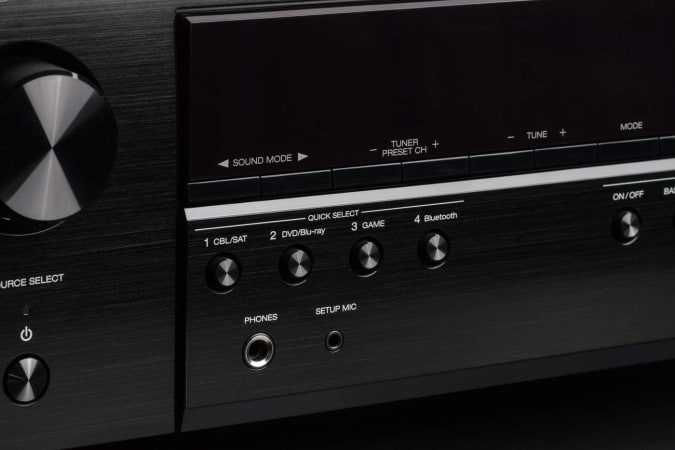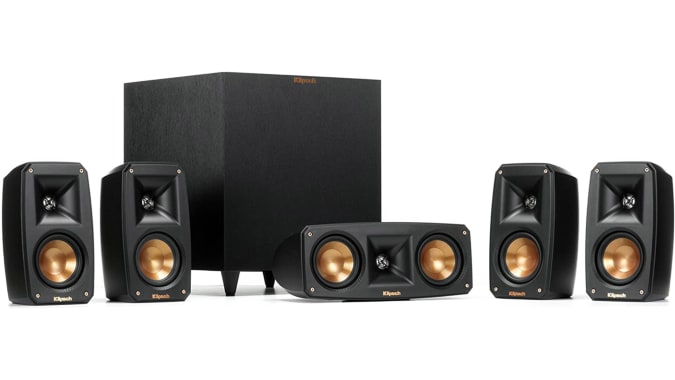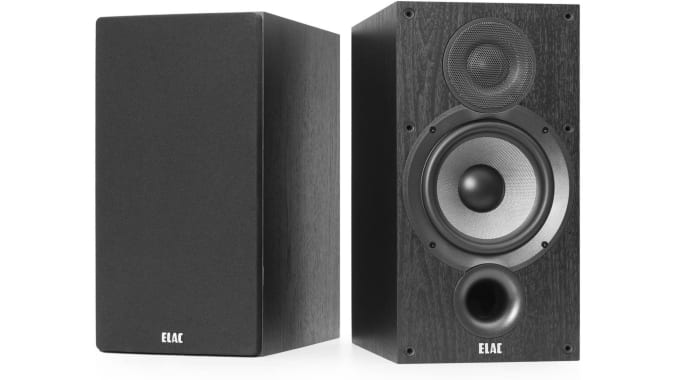All products recommended by Engadget are selected by our editorial team, independent of our parent company. Some of our stories include affiliate links. If you buy something through one of these links, we may earn an affiliate commission.
Just watch Dune once with TV speakers or a basic soundbar, and you’ll understand the appeal of a real surround sound system. You may already have stunning visuals thanks to that new OLED set, but if the enormous sandworms of Arrakis don’t rattle your living room with butt-shaking goodness, then you’re missing out on an essential element of that film. Thankfully, it’s never been easier to bring the surround sound experience home without investing thousands of dollars in Hi-Fi components.
Pro tip: Think ahead as much as you can
It’s easy to snap up the cheapest surround sound system you can find, or overspend beyond what you actually need. So before you buy anything, I suggest sitting down and thinking about what you need now, and project ahead a few years to see if things may change. If you’re stuck in a small city apartment, it’s probably not worth investing in enormous speakers that you can never play loud. But if you’re moving within a year or two, maybe you can start with a smaller system and build up.
Different rooms may also require different types of equipment. It makes sense to go wire-free in a family room that’s always filled with kids and their toys. But if you’re lucky enough to have a basement or some sort of dedicated home theater space, feel free to go big. Just leave yourself room to upgrade: Consider an Atmos receiver, even if you’re not buying Atmos speakers yet.
Get a sound bar system
Kyle Maack/Engadget
Sound bars have come a long way over the last decade. It used to be that you’d sacrifice a significant amount of quality to have a tidy little box sitting underneath your TV. But today’s entries are much better at mimicking two separate front channels and a center speaker. Some models also support newer immersive audio formats like Dolby Atmos and DTS:X by bouncing sound off of your ceilings with upward firing speakers. (That may seem a bit silly, but this technique does a decent job of simulating overhead sounds.)
As a bonus, soundbar systems only need one cable to connect to your TV. They also typically rely on wireless subwoofers and rear speakers, which don’t require stringing any long cables around your living room like a traditional surround setup. Of course, you’ll still need to power those up, though, so be sure to have outlets nearby.
As you’d expect, the most expensive options sound the best, like Sonos’s Arc ($899) and Vizio’s Elevate 5.1 system ($799), but you don’t have to spend that much to get a decent surround experience. Vizio’s 5.1.2 M-series system ($500 normally, currently $350 at Best Buy) has everything you’d want: A powerful soundbar equipped with two Dolby Atmos/DTS:X height channels, a wireless subwoofer and two wireless rear channels. Vizio’s V-series 5.1 system is even cheaper at $200, but the smaller speakers and subwoofer will sound significantly worse and you’ll lose Atmos support.
Buy Arc at Sonos – $899
Buy Vizio Elevate at Amazon – $799
Buy Vizio 5.1.2 M-series at Best Buy – $350
Buy Vizio V-series 5.1 system at Best Buy – $200
Another simple option is Roku’s family of speakers. the Streamable Pro ($150) is a capable soundbar that also doubles as a Roku streaming box, making it ideal for older TVs with no apps (or not-so-smart recent sets). It’s a good option if you want to build your surround system over time: you can always add Roku’s Wireless Speakers ($150) as rear channels, as well as the company’s wireless subwoofer ($180) when you need more low-end oomph. The complete system will run you $480, but remember that it doesn’t have any Atmos support like Vizio’s M-series.
Buy Streambar Pro at Amazon – $150
Buy Roku Wireless Speakers at Amazon – $150
Buy Roku Wireless Subwoofer at Amazon – $180
Want something more? Start with an amplifier
denon
The beauty of soundbars is that they handle all the audio processing you’d need. But if you want to get really serious, you’ll need a receiver that can decode your audio signals and direct them to speakers. Notably, sound isn’t their only task these days; modern receivers are usually equipped with multiple analog video and HDMI ports to handle all of your devices. So instead of plugging your PlayStation 5 and streaming boxes into your TV, they’d go directly into your receiver. Any decent option will also offer Bluetooth, Spotify Connect and support for other popular streaming services, so they’re still plenty useful without turning on your TV.
A receiver like the Denon AVR-S540BT ($349) is a decent start, with support for the latest non-immersive audio formats (Dolby True HD and DTS HD Master) and 4K HDR video at 60Hz. You’ll have to step up to something like the Sony STR-DH790 ($450) to get Dolby Atmos and DTS:X support, unfortunately.
Buy Denon AVR-S540BT at Amazon – $349
Buy Sony STR-DH790 at Amazon – $450
Since you probably won’t be upgrading your receiver too often, I’d say it’s worth paying for those formats now. They go a long way toward making your surround sound experience sound more natural. Instead of having audio coming from individual channels — say, just the center speaker for dialogue — Atmos and DTS:X treat individual sounds as objects that can move across all of your speakers. And once you have upward-firing speakers (or even better, units installed directly into your ceiling), those formats can make you feel like you’re right inside a movie.
If you want to future-proof yourself even more, look out for receivers that support HDMI 2.1, which allows for 4K video at 120Hz and 8K/60Hz. the Denon AVR-S760 ($620) is one of the most capable options available now, though take note that this model (as well as other Denon, Yamaha and Marantz AVRs) currently has issues with the Xbox Series X. (A free box should fix that, though.) Alternatively, you could always connect your HDMI 2.1 console directly to your TV (assuming it supports that), and route that devices audio back to your receiver using eARC.
Buy Denon AVR-S760 at Amazon – $620
box it up
clip
So now that you’ve got a receiver in mind, how about some speakers? The easiest way to solve that is with a boxed system, like Klipsch’s Reference Black Home Theater ($360). It has the typical 5.1 setup: two fronts, a center, two rears and a convenient wireless subwoofer. The Reference Black system has been well reviewed by the team at CNET, and the current price is practically a steal compared to its original $1,000 MSRP. The ever-budget-friendly brand Monoprice also has an immersive system going for $250, which includes two satellites with upward-firing speakers. (And if you lucked into a receiver with more than two Atmos channels, there’s so a $300 set with two more upward-firing speakers.)
Buy Klipsch Reference Black Home Theater at Amazon – $360
Buy Monoprice 133831 at Amazon – $250
Buy Monoprice 133832 at Amazon – $300
If you’re aiming for something closer to a premium Hi-Fi setup, Fluance’s Elite 5.0 system ($500) is worth a look. It includes two front towers, a larger center channel and wall-mountable rear speakers. They’re also available in a variety of colors, which is more than you see from some high-end offerings. I haven’t tested these myself, but the reviews I’ve seen have been practically rapturous, and Fluance is a company known for producing high quality speakers. You’ll have to add your own subwoofer down the line, but those towers should shake your living room plenty. And if you wanted to add Atmos later, you can just throw on some Atmos additions like the ELAC Debut 2.0 speakers ($260).
Buy Fluance Elite 5.0 system at Amazon – $500
Buy ELAC Debut 2.0 speakers at Amazon – $260
What about starting with a 2.1 or 3.1 setup?
ELAC
You don’t necessarily have to buy your entire surround sound system at once. In fact, that’s a great way to extend your budget, since you’ll have more money down the line to add better hardware. Once you’ve picked up an AV receiver, a decent pair of bookshelves like the ELAC Debut 2.0 B6.2 ($340) will be an incredible upgrade over a simple soundbar or TV speakers. My only suggestion is to try to stay within the same speaker family to keep your sound consistent.
For example, you could add any of ELAC’s debut 2.0 subwoofers for a bit of low-end action, or snag the C6.2 center channel ($280) to round out your front speaker setup. And eventually, you could add more bookshelves, or perhaps move them to the rear and pick up the Debut F6.2 towers ($400 each) for an even beefier sound stage. All of those components will add up to an incredible sounding system, though you’d never consider it a “budget” solution.
Buy ELAC Debut 2.0 B6.2 at Amazon – $340
Buy ELAC Debut 2.0 subwoofers at Amazon – $280
Buy ELAC C6.2 center channel at Amazon – $280
Buy ELAC Debut F6.2 tower at Amazon – $400



